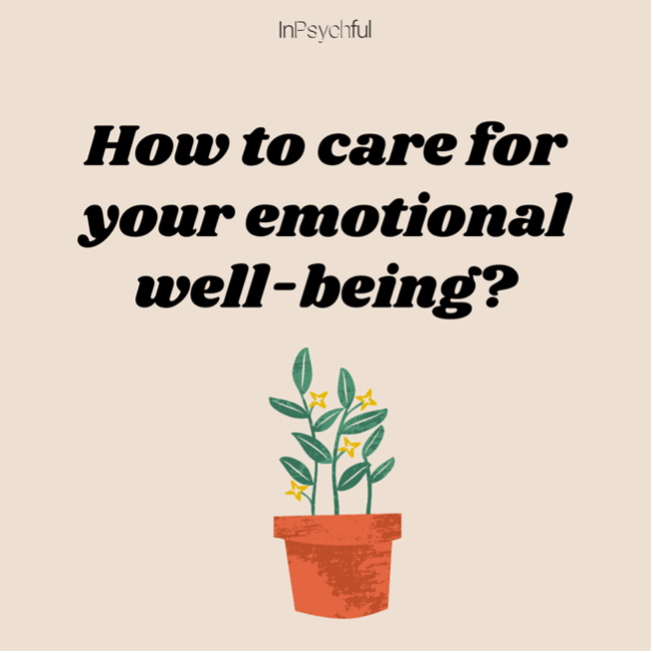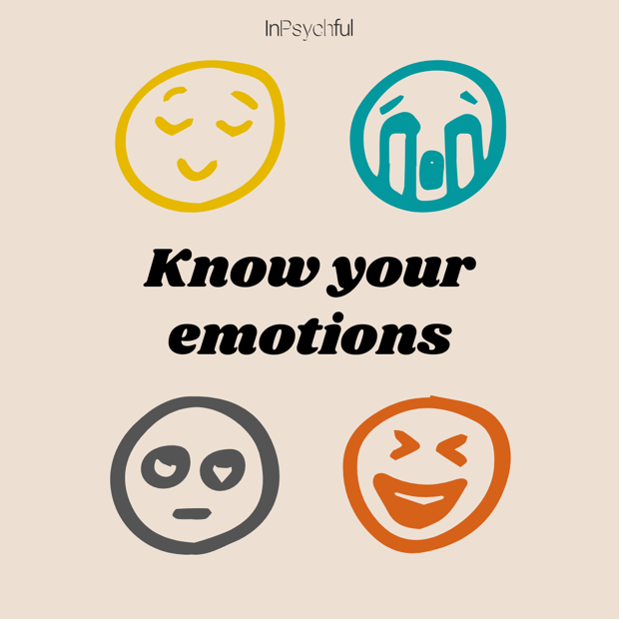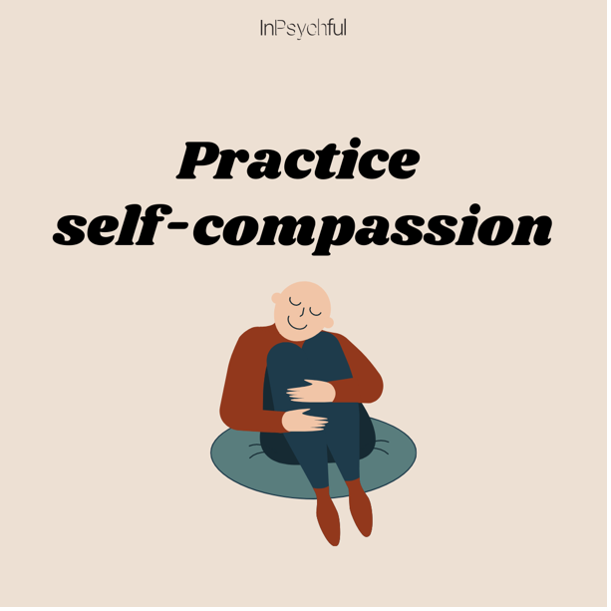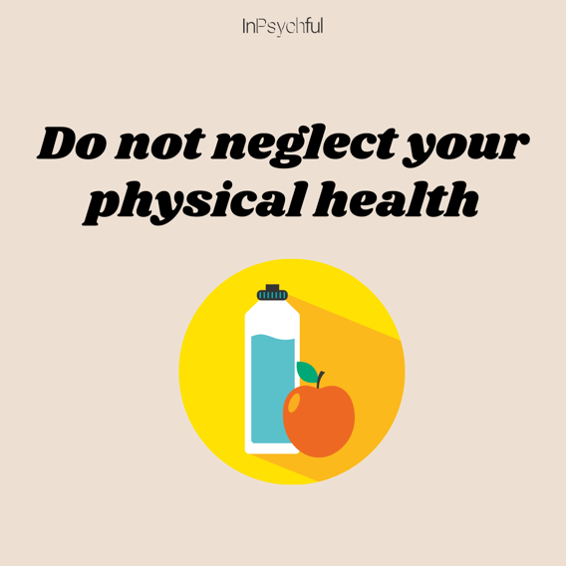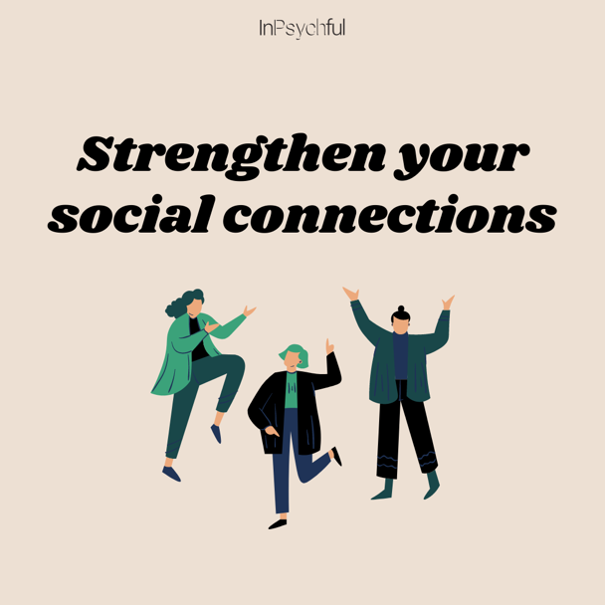Along the course of life, we all experience many emotions. While some emotions occur on a daily basis, life sometimes take an unexpected turn and throw us an emotion that is intense, difficult and much less familiar to us. Especially during this unprecedented time where we are coping with Covid-19, our emotions can sometimes feel as though it has become out of whack, and stress seems like the new normal.
When we experience difficult and intense emotions, it is normal to feel overwhelmed and lost. However, it is also possible to learn how to have mastery over our emotions. Developing the ability to regulate our emotions will not only prevent us from spiralling out of control in emotionally challenging situations, but will also help us to rise above the situation and carry out the best course of action afterwards. Therefore, in this blog post, we will share with you some tips on how to achieve emotional wellness.
Know your emotions
Being aware of our emotions is the first step to understanding ourselves and also how to react in a challenging situation. Try to recall the times you experienced an unpleasant emotion. What was the event that triggered it and who were involved? How did you feel? And how did you manage the situation? When we face stressful situations that induce unpleasant emotions, it is instinctual for us to go into our “fight-or-flight” mode, which can be a maladaptive coping strategy. Instead of being defensive or escaping from the problem, try to stay open-minded with such uncomfortable feelings. The next time you feel a strong negative emotion, pause for a bit, try to understand what these feelings mean and take a moment to figure out how to best express them.
Practice self-compassion
When we encounter a setback in life, it is common to respond by becoming defensive and putting the blame on others, or berating ourselves for the failure (Chen, 2018). Neither of these responses are helpful. When we refuse to admit a mistake, although we alleviate the sting of failure, we miss out on a possible learning opportunity. On the other hand, although self-criticism may feel warranted at that moment, it can result in a drop in self-esteem which can adversely affect one’s personal development.
Instead, try treating yourself the way you would treat a friend in a similar situation. People with high levels of self-compassion respond to failure in these 3 ways:
(1) being kind rather than judgemental to themselves,
(2) acknowledging that failure is a shared human experience and lastly,
(3) taking a balanced approach towards negative emotions so that feelings are neither exaggerated nor suppressed (Neff, 2021).
Overall, self-compassion boosts personal growth as it triggers the “growth mindset” – the belief that personal qualities can be improved with determination, persistence and hard work (Chen, 2018). Therefore, rather than beating yourself up over a mistake made, believe that you can pick yourself up and do better the next time round.
Do not neglect your physical health
Just like how a car needs fuel, working parts and rest to operate smoothly, our human bodies need nutritious food, exercise and sufficient sleep so that we can perform optimally. However, sometimes when life gets too hectic, we end up compromising our physical health to fit everything we want to do in a day. This could mean not eating healthy, not being active and sacrificing sleep.
If you are not taking care of your physical health, this can adversely affect your emotional well-being in the long run. When you are lethargic and your body don’t have enough nutrients, you can’t perform at your best. If you are neglecting your physical health, you can improve your overall well-being by setting small attainable goals for yourself. For example, commit yourself to adding greens to your meals or take a short 30-minute walk around your neighbourhood at least 2-3 times a week. Also, don’t forget to reduce guilty pleasures and bad habits like fast food, alcohol or staying up to the wee hours of the morning. Research have found that it takes at least 2 months – or 66 days to be exact – to form a habit, so consistency is key (Lally et al., 2010)!
Strengthen your social connections
Research has repeatedly shown that having a strong support system is crucial for building resilience to stress and improving emotional well-being (Ozbay et al., 2007). Social support can be our family, friends, colleagues, neighbours and community members who provide us with a sense of belonging, security and community (“The Importance of Social Support”, 2017). These are the people who truly care for us and will be there in times of need. Joining groups and communities focused on your interests is one way to connect with more like-minded people, and this would be beneficial for your emotional well-being.
It is important to remember that unpleasant emotions are just as important as pleasant ones, in order for us to experience life’s ups and downs to the fullest. We should acknowledge and try to understand our emotions more as they give us an opportunity for personal growth and a greater understanding of self (Rodriguez, 2013). Also, in the process, we mustn’t neglect our physical health and remember to surround yourself with people whom you love.
Authors: Camellia Wong (M.A), Karin Ng
Read More
References
Chen, S. (2018). Give Yourself a Break: The Power of Self-Compassion. Retrieved Jan 15, 2021, from https://hbr.org/2018/09/give-yourself-a-break-the-power-of-self-compassion
Neff, Kristin. (n.d.). Self-Compassion. https://self-compassion.org/the-three-elements-of-self-compassion-2/#3elements
Lally, V., Jaarsveld, C., Potts, Henry. & Wardle, Jane. (2010). How are habits formed: Modelling habit formation in the real world. European Journal of Social Psychology, 40(6), 998–1009. https://doi.org/10.1002/ejsp.674
Ozbay, F., Johnson, D. C., Dimoulas, E., Morgan, C. A., Charney, D., & Southwick, S (2008). Social support and resilience to stress across the life span: A neurobiologic framework. Current Psychiatry Reports, 10(4), 304–310. https://doi.org/10.1007/s11920-008-0049-7
Rodriguez, T. (2013). Negative Emotions Are Key to Well-Being. Retrieved Jan 15, 2021, from https://www.scientificamerican.com/article/negative-emotions-key-well-being/
The Importance of Social Support. (2017). Retrieved Jan 15, 2021, from https://phctheproject.org/the-importance-of-social-support/

